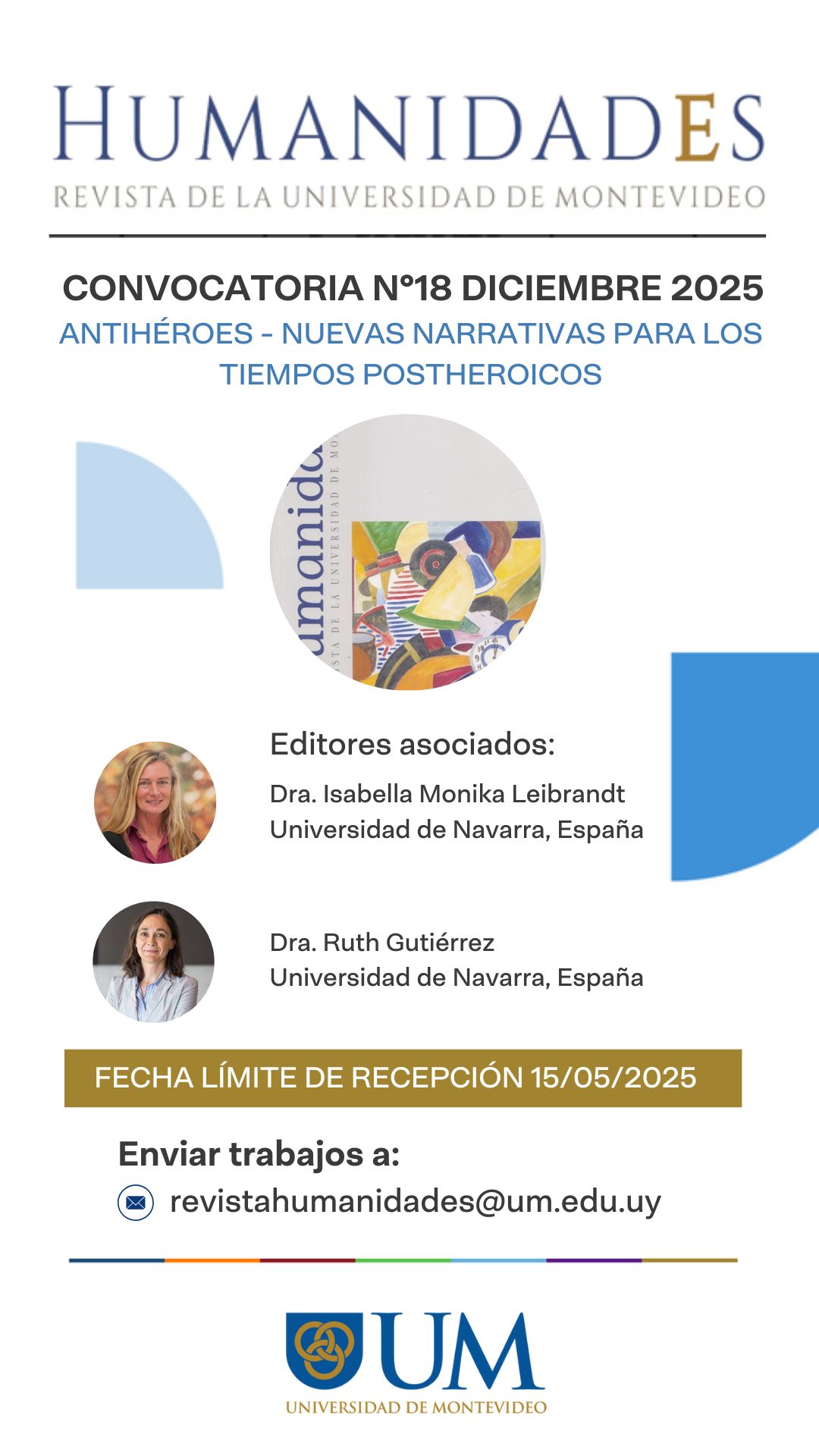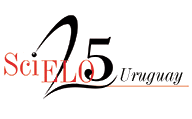CALL FOR PAPERS Nº18, December 2025, "Antiheroes - New Narratives for Postheroic Times"

Call for papers for the "Studies" section of issue no. 18 (December 2024)
Monograph: Antiheroes - New Narratives for Postheroic Times
Editors associated with this issue:
Dra. Isabella Monika Leibrandt, Universidad de Navarra, España, ileibrandt@unav.es
Dra. Ruth Gutiérrez, Universidad de Navarra, España, rgutierrez@unav.es
The discourse on the anti-hero and the anti-heroic is a phenomenon that has shown increasing interest in literary and cultural studies. The discussion has even gone so far as to cross the boundary of the anti-heroic to inaugurate the post-heroic era (Brökling, 2020). The two concepts manifest the second consequence of post-truth: the impossibility of progress or improvement in action and its representation.
Anti-heroism is associated with a widespread social tendency to judge a failure or negative appearance as positive (Weinelt Nora 2015). This would be a relativistic view of the hero, associating him or her with time. However, the postheroic implies an overcoming of the need for heroes and aspirational ideals in society.
Precisely in the (post)modern novel we find one of the most striking characteristics of the anti-hero: it presents itself as a symptom of the structural crisis of heroism in (post)modern times and at the same time as a satisfaction of the hunger to realise the quest for the heroic. Art, literature and especially the media create these pre-modern types as rebels or folk heroes by characterising the protagonists as
by characterising surrogate protagonists as serial killers, young cynics, tricksters, who act as leaders of action rather than heroes, in the exemplary sense.
At this point, the poetic logic is inverted, making the protagonist not the hero of the story, but the villain - a universe that responds to a moral structure of relative evil that presents them as "better" than the average within that same world. As a result of this phenomenon of critical contestation, the anti-epic (and with it the anti-hero) is born, creating spaces of experience of an ironic nature, when it comes to comedy, and cynical, when it comes to thrillers or crime fiction, for example, in narcoseries or true crime, which offer worlds opposed to fantasy. In this genre it is still possible to find a place where, in an emerging way, epics with a romantic and dark symbology are still brewing.
In it, it is vampires, zombies and other anti-heroic characters, such as groups of rebels in post-apocalyptic dystopias that stir the debate on concepts of heroism, as they are both an expression of the potential search for a new spirituality and the personification of fixed value categories that seem to have been lost in a post-modern world.
With the study of the phenomenon of the anti-hero and the villain protagonist in the postheroic era we want to examine what exactly constitutes an anti-hero and a villain heroified by embodying the protagonist role in opposition to and as a complement to the hero. The aim is to analyse the diversity of the phenomenon of the anti-hero, to develop a practical approach to the analysis and research of these characters and to provide more concrete knowledge also about the forms and functions of heroic representation.
Main lines:
- Distinctive features of the hero and the anti-hero. Definition, typologies and functionality. What are the gender-specific physical, psychological or ethnic characteristics that allow for the attribution of an anti-hero/heroine?
- Representations, thematic universes and heroisations. Given that the figure of the anti-hero can manifest itself in various forms, is transmitted through the media and constructed by social, political, literary, etc. communities, as such, the aim is to find out the forms of articulation and possible models of the anti-hero.
- The formation of the anti-hero: intentionalities, objectives and judgements. The aim is to investigate the interests and intentions with which a figure is self-styled or stylised by others to form an anti-hero: who dictates the judgement for an anti-hero? Through literary and media narratives, the function of this figure for certain groups or societies in which he or she operates will be examined.
- Mitigation and mythologies (retelling). Given the fundamental importance of myths and mythical structures in different areas, a conscious use of myth is highly desirable in order to make this instrument of knowledge fruitful. We start from the fact that mythological knowledge is indispensable for the understanding of many literary works and visual arts of the past and present. This requires an elaboration of both the mechanisms of action of myths, their opportunities and threats, as well as their reception history.
-New heroic voices: the inversion of the classical pattern and structures of the hero's journey. Countercultural proposals, characterising rebellious characters or popular heroes as protagonists replaced by serial killers, young cynics, tricksters, who act as leaders of the dramatic action, rather than heroes, in the exemplary sense.
-Genres that welcome the emergence of heroic voices. Through post-apocalyptic dystopias
post-apocalyptic dystopias, dystopian fantasies, pseudo-epic sagas and science fiction epics or space westerns, heroic characters are reinvented, evoking old conceptions of war or science fiction, with new technological, virtual, etc. perspectives.
Keywords: anti-hero, post-truth, anti-epic, post-modernity.
The deadline for submissions is 15 May 2025.
Texts may be submitted in Spanish, English and Portuguese.
Contributions must conform to the editorial guidelines of the journal: http://revistas.um.edu.uy/index.php/revistahumanidades/about/submissions
Papers should be sent to the following e-mail address: revistahumanidades@um.edu.uy
Humanidades: revista de la Universidad de Montevideo is a scientific, peer-reviewed journal of Philosophy, History and Literature, published every six months in June and December of each year and aimed at a specialised readership. Its aim is to constitute an open forum in which the disciplines dialogue with each other and contribute new knowledge. Indexed in: Latindex, Scielo, ERIHPLUS, Dialnet, DOAJ, EBSCO-Academic Search Ultimate, Scopus.
























 This work is under a
This work is under a 